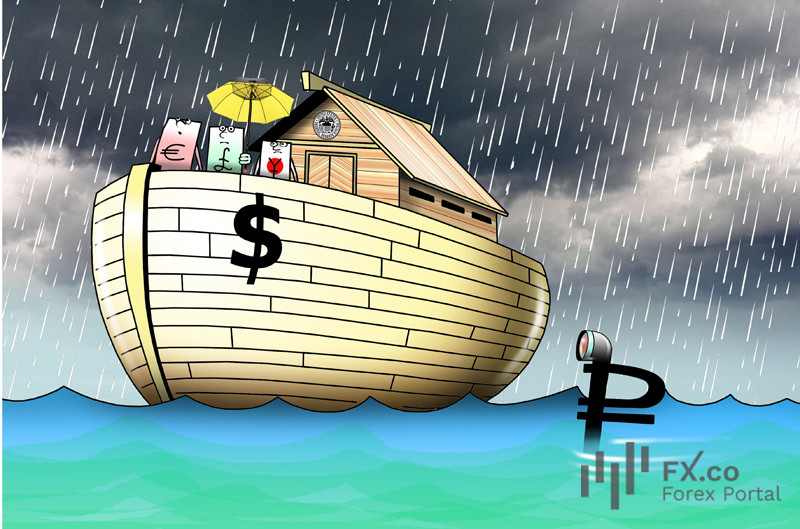
Many experts and investors bet on the US currency, hoping for its relentless climb despite high inflation and a recession. However, their opponents doubt the dollar’s strength even though it is traditionally regarded as a safe-haven asset. Some market participants fear that fleeing into the American currency in the face of the current crisis is unlikely to be of benefit to investors.
The dollar's supremacy enables the United States to retain control of the global financial system and world trade. However, things may well change, analysts believe. Many commodity assets have turned into financial instruments, and investment volumes depend on capital flows that are mainly denominated in US dollars.
The greenback's dominance makes global markets dependent on changes in the Fed's monetary policy as well as the state of the US economy. This helps regulate global output. At the same time, the dollar’s strength is supported by the stability of the US economy.
The main threat to the dollar remains a looming recession in the United States. The current Federal Reserve rate is 4%, but this is not the limit. Meanwhile, US inflation is at 7.7%, although it stood at 1.3% in January 2021. Against this background, American corporations are increasing spending to maintain the debt burden.
Many analysts are worried that the US may tip into a recession, which will further hit the whole world. Fearing such a scenario, investors are transferring their assets from developing countries to the world’s largest economy. This in turn supports the dollar and contributes to the US economy’s recovery.
The dollar-based financial system allows the greenback to stand to benefit in case of economic and financial drawbacks. According to experts, the US has managed to build a system whereby its currency is able to retain its safe-haven status in any crisis.
However, the current broad rally in the dollar poses challenges to other countries that have US dollar-denominated debts. Not only the currency in which the national debt is denominated, but also interest rates on federal debts are growing amid the US Federal Reserve's monetary policy tightening.
In addition, the US dollar is used as a weapon in the sanctions war. The freezing of dollar assets held by Russia, Iran, Venezuela, Cuba, and Afghanistan has added fuel to the fire. As a result, many countries are now engaged in substantial efforts to restructure their mutual trade and switch to settlements in national currencies. This reduces their reliance on the greenback in the long term, experts say.
What is more, the Fed's aggressive rate-hike path remains a challenge. This policy contributes to ballooning debt servicing costs that are already above $30 trillion. At the same time, rate increases by the US central bank amid surging inflation and the phasing out of the quantitative easing program make the dollar lose its hegemonic position. This results in capital outflows, a stronger greenback, and weaker risky assets. This creates problems for global trade in the long term, experts point out.
Now the United States has two options for maintaining its national currency's supremacy. The country may either create a unipolar world and pressure the countries reliant upon the US to refuse alternative payment systems.
 English
English 
 Русский
Русский Bahasa Indonesia
Bahasa Indonesia Bahasa Malay
Bahasa Malay ไทย
ไทย Español
Español Deutsch
Deutsch Български
Български Français
Français Tiếng Việt
Tiếng Việt 中文
中文 বাংলা
বাংলা हिन्दी
हिन्दी Čeština
Čeština Українська
Українська Română
Română

Comments: